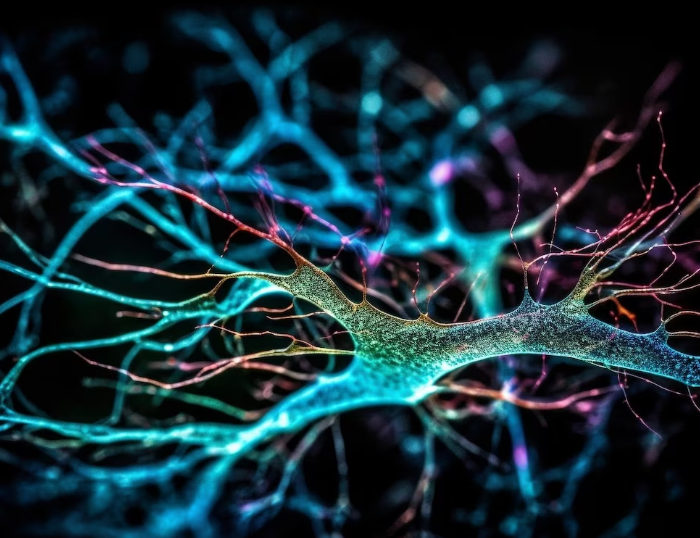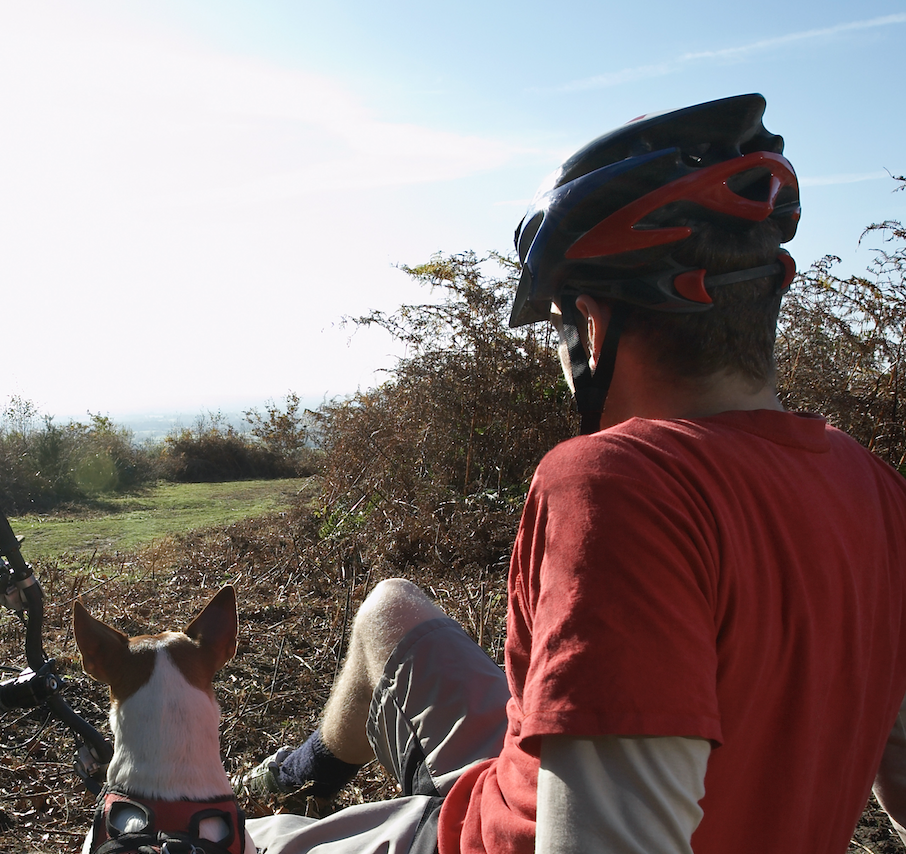
Human bodies function like an ideal system, whose components are in perfect balance with each other. If one of these components malfunctions, then it can affect the work of many others too.
There are many complex processes that take place in our bodies without needing any voluntary action or effort on our end, such as breathing, heartbeat, digestion, etc. These processes are controlled by our autonomic nervous system which is a part of the peripheral nervous system responsible for managing all physiologic processes in our bodies.
Imagine that the function of the autonomic nervous system is disrupted. What the consequences would be, and how would be possible for us to continue functioning?
Dysautonomia is a group of disorders that affect exactly our autonomic nervous system, leading to a range of debilitating symptoms that impact our daily lives. Living with this condition can be very challenging, which is why many people reach out to the assistance of loyal paw companions, to help them deal with this disorder!
In light of the fact, that service animals can be of tremendous help to many individuals, affected by dysautonomia, we have dedicated today’s article to their support to individuals coping with this condition.
Dysautonomia - Causes
The factors that can cause dysautonomia can be divided into two groups depending on what type the condition is.
Primary Dysautonomia
This type of dysautonomia is caused by diseases that damage the nervous system and brain. These diseases are either genetically inherited or degenerative.
Secondary Dysautonomia
This type of dysautonomia is caused by traumas, injuries or triggered by health conditions such as- Parkinson’s disease, Diabetes, Lupus, and Arthritis.
According to recent studies, dysfunction of the autonomic nervous system can be a symptom of Post-Covid conditions, related to COVID-19. Some individuals who experienced severe symptoms of COVID-19 may have their organs negatively affected including the heart, lungs, kidneys, and brain. Post-Covid complications may interfere with body functions and unlock autoimmune diseases.

Types of Dysautonomia
Alongside distinguishing between primary and secondary dysautonomia, this disorder can also be divided into:
Generalized Dysautonomia
As the name implies, this type does not affect a specific organ or body function, but spreads throughout the body.
Local Dysutonomia
It usually causes pain in one of the limbs.
Severe / Sudden Dysautonomia
This type is also known as Reversible Dysautonomia or the Guillain-Barré syndrome. This condition is characterized by an individual’s immune system attacking the peripheral nerves. Adult men are likely to be more often affected by this syndrome than others, although it can affect individuals of all ages and sexes. As the name suggests, people usually fully recover from this disease.
Chronic Dysutonomia
Unlike Sudden / Reversible Dysautonomia, the chronic variation of this disorder is ongoing and is worsening over time.
Dysautonomia - Symptoms
Due to the complexity of this condition and the wide range of organs and body functions it can affect, the symptoms usually vary. They may be related to:
Respiratory Issues
Breathing difficulties or shortness of breath can be accompanying symptoms of this disorder.
Cardiovascular Issues
Common cardiovascular problems that may be symptoms of dysautonomia are Orthostatic Hypotension (drop in blood pressure upon standing); Tachycardia (rapid heart rate) or Bradycardia (slow heart rate); Palpitations (type of arrhythmia); Syncope (fainting episodes).
Gastrointestinal Issues
Gastroparesis (a condition characterized by food going through the stomach slower than it should); Bloating; Vomiting; Abdominal pain; Nausea.
Issues with Temperature Regulation
Problems with temperature regulations could mean lack of sweating or excessive sweating. The first condition is known as Anhidrosis, while the second one is known as Hyperhidrosis. Intolerance to cold or hot are also examples of symptoms of dysautonomia.
Other Symptoms
Dizziness, Fatigue, Cognitive problems, Memory issues, Blurred vision, Sleep issues, Tremors are other conditions that may be caused by dysautonomia.

Service Dogs for Individuals with Dysautonomia
It is worth noting again that service animals can assist individuals with physical and/or mental impairments in various ways. The tasks these dogs perform are adapted to the person’s needs and be related to both physical and mental assistance.
Medical Alerting Tasks
Service dogs can be trained to detect changes in their owners’ vital signs such as blood pressure, heart rate, and body temperature. By alerting their handlers to these changes, service dogs provide an essential type of warning that allows individuals to take preventive measures. These help ensure that potential episodes will be avoided or that their effect will be at least mitigated.
Seizure Alert Dogs, Diabetic Alert Dogs, and Cardiac Alert Dogs are types of medical alert service animals, whose goal is to notify the owner of oncoming episodes and deviations from the normal levels of vital signs. Medical alert training is built on scent training, which relies on the great sense of smell that dogs have.
Assistance During / After Episode (Response Tasks)
Unlike alert tasks, which imply some kind of warning, so the person is prepared for what is about to happen, response tasks are performed during episodes or after episodes have already taken place. For instance, if the person is feeling dizzy, or lightheaded and is put at risk of falling down, a service dog can be trained to protect them through their body or help the person keep balance.
A service animal can also guide the owner to a safe place or to a nearby seat or bed, where they can rest safely. Some dogs are even trained to call 911 in case of emergency or notify a family member or a designated person of the owner’s condition. This will help ensure timely assistance.
Retrieve Tasks
Fetching medication, a phone, a warm blanket, or basically anything that the owner needs can be lifesaving. Some dog breeds are naturally predisposed to retrieve items such as the representatives of the Retrievers, the Spaniels, and the Setters, while others will face many difficulties to learn to do this task.
Retrieving items is an essential type of task. However, you should objectively evaluate your dog’s traits and be aware of how much time it may be needed to train them in a certain task that they may not naturally be prone to perform.
Mobility / Balance Tasks
Mobility/balance-aiding tasks can be done not only when the owner is feeling lightheaded and is exposed to the risk of falling down, but also when they feel pain in their limbs and have decreased mobility. Obstructed mobility can definitely be a symptom of this disorder, which determines the need of a large dog breed for mobility support.
You can find more detailed information on how mobility service dogs can assist individuals with reduced mobility and balance issues in our article: Mobility Service Dogs: How they help with walking and mobility. The article Best Mobility Service Dogs Breeds will give you valuable tips on what dog breeds are considered most suitable for mobility type of work.
Psychiatric Service Dog (PSD) Tasks
If you tend to visit our blog section quite often, you may have noticed that we regularly mention PSD tasks as part of the crucial work that service dogs do.
Yes, PSD tasks are designed to specifically help people with mental disabilities. Why mention these tasks then?
Physical disabilities interfere with all aspects of a person’s life, by often causing them to lose confidence, feel isolated, and be unable to engage in meaningful social interactions. The mental health of many people affected by different types of disorders worsens a lot, leading to anxiety, panic attacks, depression, and different phobias.
Helping the owner calm down by jumping on their lap or putting their chin on the owner’s lap and using the warmth of their body is known as Deep Pressure Therapy. It is probably the most popular PSD task, that has proved rewarding for individuals with various conditions.
Licking the owner’s arm, leg, or face, nudging the owner, jumping on their bed, alerting them to anxiety episodes, reminding them to take medication, providing crowd control when in public, and interfering with potentially harmful behaviors are important tasks, that can tremendously enhance mental health and overall well-being of a person.
Our advice is to do research and think of what types of tasks will benefit you the most. If you already have a loving paw friend, then you might consider training them as your assistance animal. If you are in search of a service dog, then make sure that you will choose a healthy, friendly, and people-oriented puppy as your loyal companion!
Let’s appreciate service animals-these paw angels that are always by our side to help and guide us!












